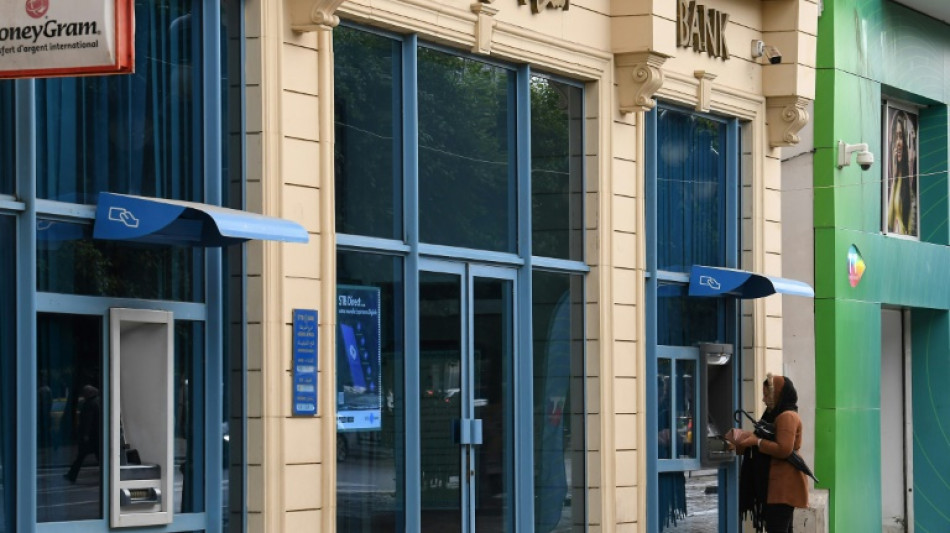
-
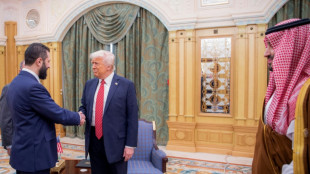 Trump presses Syria leader on Israel after lifting sanctions
Trump presses Syria leader on Israel after lifting sanctions
-
French PM to testify on child abuse scandal
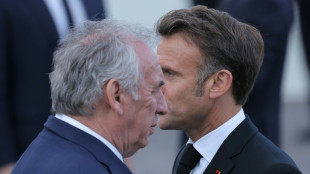
-
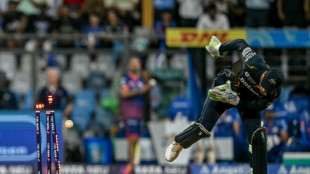 Players stuck in middle with IPL, national teams on collision course
Players stuck in middle with IPL, national teams on collision course
-
Peru PM quits ahead of no-confidence vote
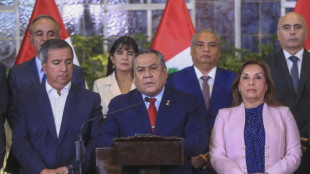
-
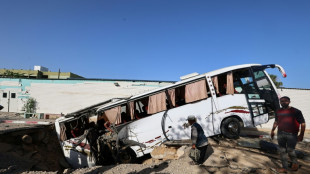 Strikes kill 29 in Gaza as hostage release talks ongoing
Strikes kill 29 in Gaza as hostage release talks ongoing
-
Court raps Brussels for lack of transparency on von der Leyen vaccine texts
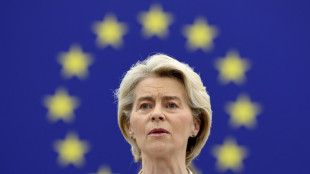
-
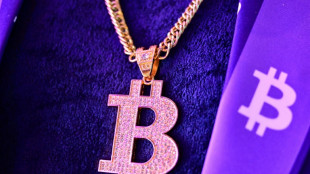 France summons cryptocurrency businesses after kidnappings
France summons cryptocurrency businesses after kidnappings
-
Pakistan returns Indian border guard captured after Kashmir attack
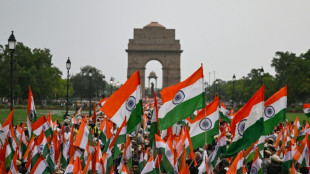
-
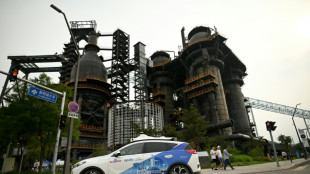 Baidu plans self-driving taxi tests in Europe this year
Baidu plans self-driving taxi tests in Europe this year
-
Trump meets new Syria leader after lifting sanctions
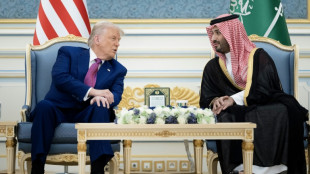
-
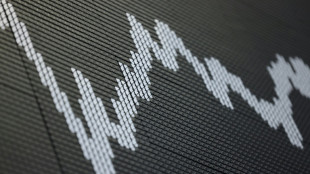 Equity markets swing as China-US trade euphoria fades
Equity markets swing as China-US trade euphoria fades
-
Burberry warns 1,700 jobs at risk after annual loss
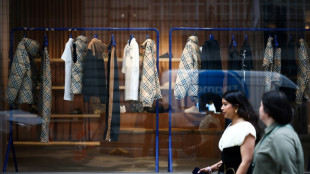
-
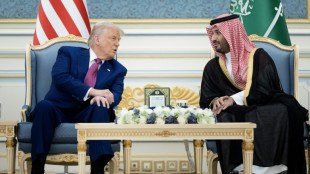 Trump to meet new Syrian leader after offering sanctions relief
Trump to meet new Syrian leader after offering sanctions relief
-
'Children are innocent': Myanmar families in grief after school air strike
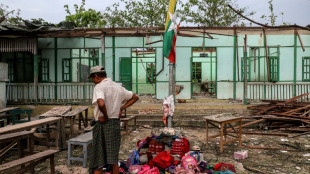
-
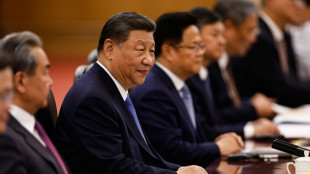 Colombia joins Belt and Road initiative as China courts Latin America
Colombia joins Belt and Road initiative as China courts Latin America
-
Australian champion cyclist Dennis gets suspended sentence after wife's road death

-
 Protection racket? Asian semiconductor giants fear looming tariffs
Protection racket? Asian semiconductor giants fear looming tariffs
-
S. Korea Starbucks in a froth over presidential candidates names
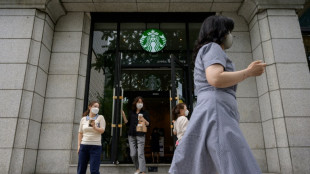
-
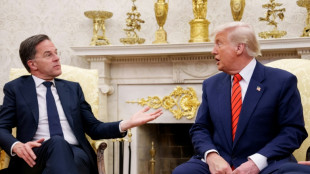 NATO hatches deal on higher spending to keep Trump happy
NATO hatches deal on higher spending to keep Trump happy
-
Eurovision stage a dynamic 3D 'playground': producer

-
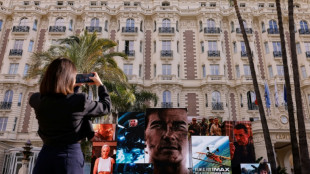 Cruise unleashes 'Mission: Impossible' juggernaut at Cannes
Cruise unleashes 'Mission: Impossible' juggernaut at Cannes
-
Suaalii in race to be fit for Lions Tests after fracturing jaw
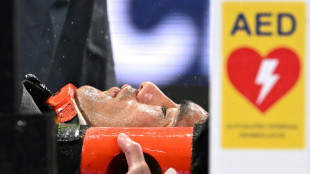
-
 Pacers oust top-seeded Cavs, Nuggets on brink
Pacers oust top-seeded Cavs, Nuggets on brink
-
Sony girds for US tariffs after record annual net profit
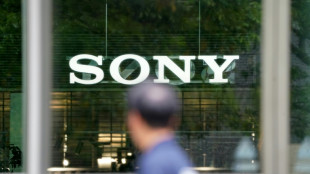
-
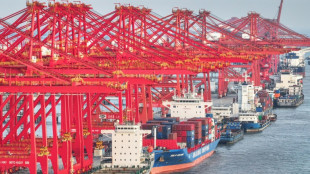 China, US slash sweeping tariffs in trade war climbdown
China, US slash sweeping tariffs in trade war climbdown
-
Human Rights Watch warns of migrant worker deaths in 2034 World Cup host Saudi Arabia

-
 Sony logs 18% annual net profit jump, forecast cautious
Sony logs 18% annual net profit jump, forecast cautious
-
China, US to lift sweeping tariffs in trade war climbdown
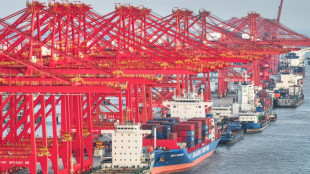
-
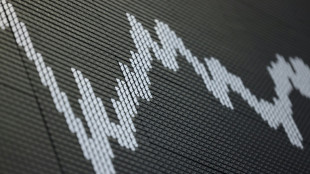 Asian markets swing as China-US trade euphoria fades
Asian markets swing as China-US trade euphoria fades
-
Australian seaweed farm tackles burps to help climate
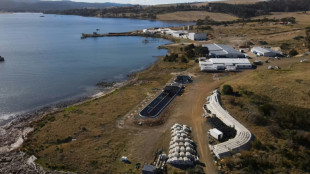
-
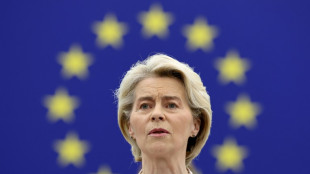 Judgment day in EU chief's Covid vaccine texts case
Judgment day in EU chief's Covid vaccine texts case
-
Trump set to meet Syrian leader ahead of Qatar visit
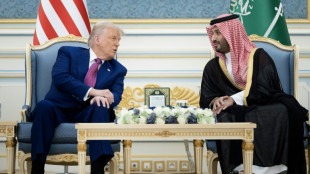
-
 Misinformation clouds Sean Combs's sex trafficking trial
Misinformation clouds Sean Combs's sex trafficking trial
-
'Panic and paralysis': US firms fret despite China tariff reprieve
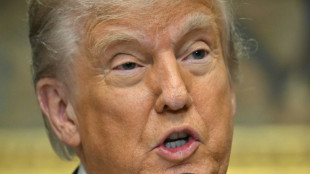
-
 Menendez brothers resentenced, parole now possible
Menendez brothers resentenced, parole now possible
-
'Humiliated': Combs's ex Cassie gives searing testimony of abuse
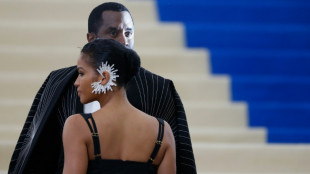
-
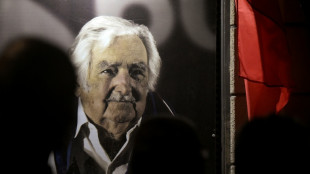 Latin America mourns world's 'poorest president' Mujica, dead at 89
Latin America mourns world's 'poorest president' Mujica, dead at 89
-
Masters champion McIlroy to headline Australian Open

-
 Sean Combs's ex Cassie says he coerced her into 'disgusting' sex ordeals
Sean Combs's ex Cassie says he coerced her into 'disgusting' sex ordeals
-
McIlroy, Scheffler and Schauffele together for rainy PGA battle
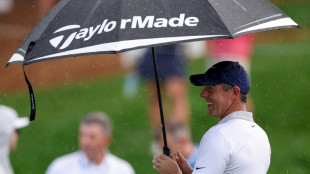
-
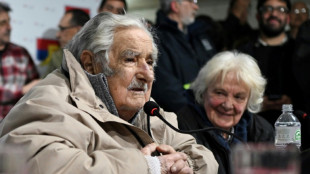 Uruguay's Mujica, world's 'poorest president,' dies aged 89
Uruguay's Mujica, world's 'poorest president,' dies aged 89
-
Lift-off at Eurovision as first qualifiers revealed

-
 Forest striker Awoniyi placed in induced coma after surgery: reports
Forest striker Awoniyi placed in induced coma after surgery: reports
-
'Kramer vs Kramer' director Robert Benton dies: representative
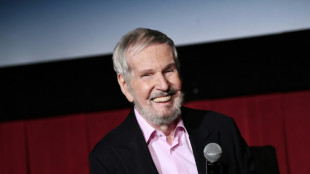
-
 Tatum suffered ruptured right Achilles in playoff defeat: Celtics
Tatum suffered ruptured right Achilles in playoff defeat: Celtics
-
US stocks mostly rise on better inflation data while dollar retreats
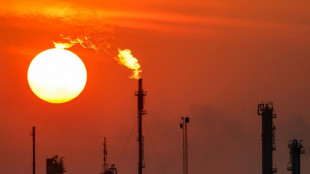
-
 Winning farewell for Orlando Pirates' Spanish coach Riveiro
Winning farewell for Orlando Pirates' Spanish coach Riveiro
-
Lift-off at Eurovision as first semi-final takes flight

-
 UN relief chief urges action 'to prevent genocide' in Gaza
UN relief chief urges action 'to prevent genocide' in Gaza
-
Baseball pariahs Rose, Jackson eligible for Hall of Fame after league ruling


'Got cash?' Tunisians grapple with new restrictions on cheques
Olfa Meriah stands, frustrated, before a smartphone shop near the capital Tunis. How can she buy a phone in instalments, she wonders, when a new banking reform has made split payments nearly impossible?
In Tunisia, where the average monthly salary hovers just around 1,000 dinars ($320), people have long relied on post-dated cheques to make purchases by paying in increments over months.
Unlike many other countries where cheques are now rarely seen in the era of instant online payments, the culture of paying by cheque persists in Tunisia.
But as part of banking reforms introduced in February the government seeks to reinforce the original role of cheques as a means of immediate payment. Cheques had effectively become a form of credit often tolerated by merchants.
Unlike debit cards, credit cards are not widely available in the north African country.
The new law officially aims at "curbing consumer debt" and "improving the business climate" in an economy whose real GDP growth, according to the International Monetary Fund, is projected at just 1.6 percent for 2025.
But many feel it has also begun disrupting household budgets and small businesses.
Ridha Chkoundali, a university professor and economist, said the new law "could be the last straw" for consumption and economic growth.
He said the measure upsets Tunisians' customary consumer behaviour, with mainly the middle class bearing its brunt.
"Since it came out, I've been searching for ways to pay for a smartphone over several months without it eating away my salary," said Meriah, 43. "But the new cheques don't allow that."
Once a crucial pillar of Tunisia's economic and social stability, the middle class made up around 60 percent of the population before the country's 2011 revolution.
Experts now estimate it has fallen by more than half to 25 percent.
- 'Got cash? Welcome' -
Leila, the owner of the smartphone shop in the Tunis-area district of Ariana, told AFP her sales have fallen by more than half, after she started taking cash only.
"No one buys anything anymore," said Leila, who didn't give her last name. "We didn't understand the law because it's complicated and we don't trust it. We decided not to accept cheques anymore."
"Got cash? Welcome. If not, I'm sorry," she summed up.
Consumers are under even more pressure during the current Muslim holy fasting month of Ramadan.
Tunisians tend to buy more during Ramadan, stocking up on food and sweets as families gather for collective meals before and after their daytime fasting.
And as Eid al-Fitr -- the holiday marking the end of Ramadan -- approaches at the end of March, shopping for clothes and gifts rises.
Many merchants had already grown reluctant to deal with cheques when the previous finance law ordered harsh prison sentences for cheque kiting -- the fraudulent practice of issuing cheques with non-existent funds.
Last April, judicial authorities said they were investigating more than 11,000 bad-cheque cases.
This year's reform is meant to reduce those cases. Based on the buyer's income and assets, it has introduced a cap on the amount that cheques can be written for.
It also allows the merchant to check if the payer has enough funds upon each transaction by scanning a QR code on their cheque.
- 'Another recession' -
Many feel the measure is intrusive, and the technological shift already adds a level of complexity.
Badreddine Daboussi, who owns one of Tunis's oldest bookstores told AFP the change has crippled his sales, adding to an already waning demand for books.
"Before, customers paid with post-dated cheques, but now they can't, and the new online tool is complicated and unreliable."
"They just can't buy books anymore," he added, noting he had even considered closing up shop.
Tunisia, a country of more than 12 million people, has long suffered sporadic shortages of basic items such as milk, sugar and flour.
Its national debt has risen to around 80 percent of GDP and inflation is at six percent, according to official figures.
Hamza Meddeb, a research fellow at the Malcolm H Kerr Carnegie Middle East Center in Beirut, wrote in October that President Kais Saied -- who rejected IMF reforms -- has engaged in "economic improvisation" with "heavy reliance on domestic debt".
Chkoundali, the other analyst, warned of "another recession".
"As consumption shrinks, the already little economic growth we have will also decline," he said.
Unemployment is already at 16 percent nationwide, according to official figures.
Feeble consumption would help push that figure even higher, Chkoundali explained, with workers risking significant layoffs as profits dwindle.
S.Gantenbein--VB
